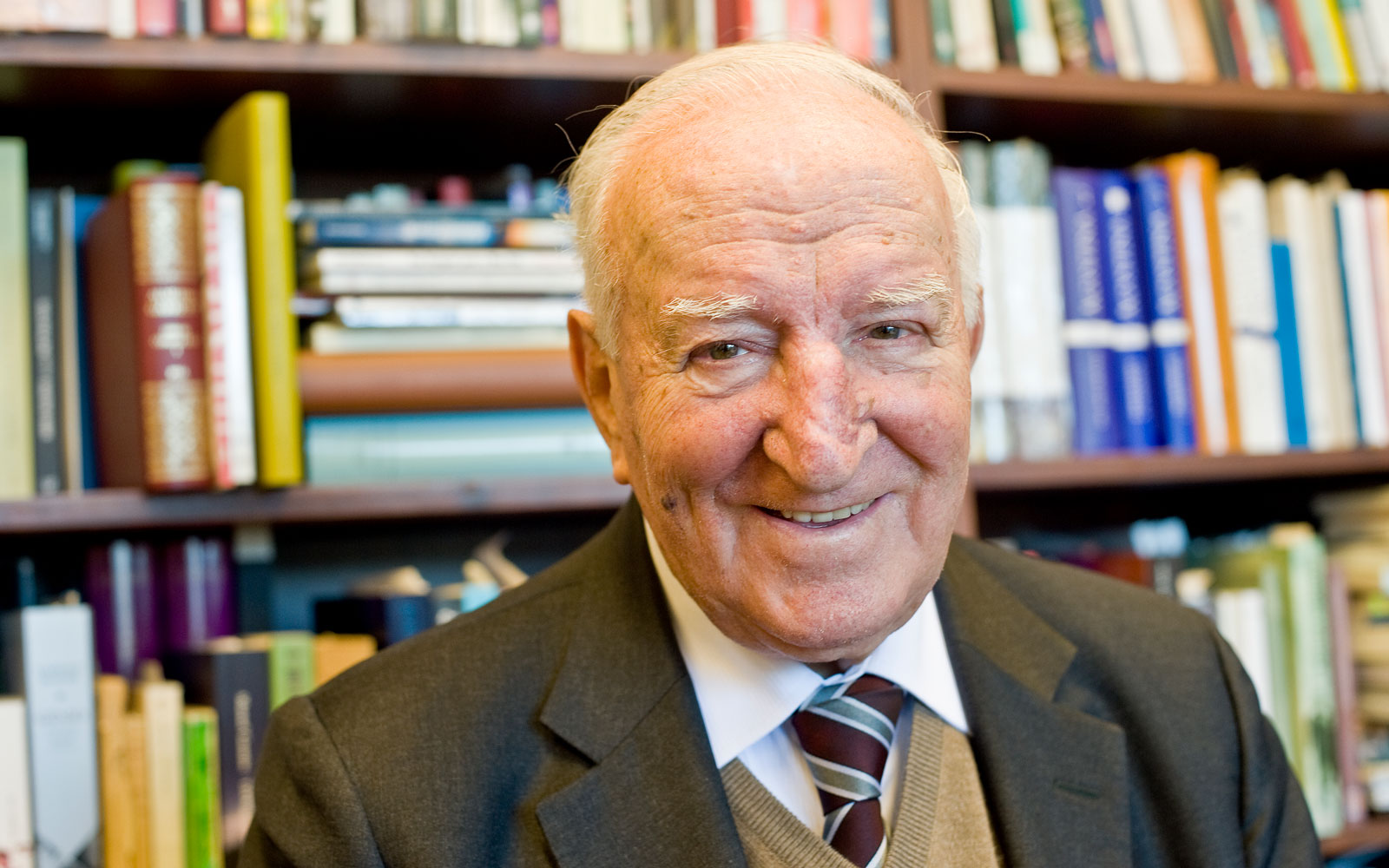Eduardo Lourenço

“An intellectual with a free spirit and a profound gaze, open and always different on matters of importance, over the years Professor Eduardo Lourenço made an important contribution to the way of thinking about the Portuguese destiny”, declared the Calouste Gulbenkian Foundation President, Isabel Mota. Recalling “a friend”, Isabel Mota highlighted “his immense culture, leveraged by his enormous thirst for knowledge and interest in the meaning of things, his love of History, his discreet sense of humour so characteristic of men of great learning.” “A figure of reference who shall certainly remain with us despite his moment of departure leaving the Calouste Gulbenkian Foundation in mourning”, the President concluded.
Eduardo Lourenço, a philosopher and essayist, was born in S. Pedro de Rio Seco, Guarda, Portugal on 23 May 1923 and went onto lecture at various universities, from Coimbra to Brasilia and passing through Hamburg, Heidelberg, Montpellier, Grenoble and Nice on the way. The author of a vast range of works – the first of which, Heterodoxia I, which underwent publication in 1949 – focuses on a broad variety of philosophical, political, cultural, religious and literary themes with an important component of his critical studies dedicated to literature and poetry, with a particular emphasis on Camões, Pessoa and Antero.
A long term contributor to the Calouste Gulbenkian Foundation, he served as a non-executive director between 2002 and 2012. The Foundation, where Eduardo Lourenço still maintained an office, continues to publish his works. There was the recent publication of the 8th and 9th Volumes in his Complete Works; Requiem para Alguns Vivos e Pessoa Revisitado. Crítica Pessoana I (1949 – 1982).
Throughout his life, he was honoured with a number of awards, including the Charles Veillon European Essay Prize (1988), the Camões Prize (1996), the Pessoa Prize (2011) and the French Academy Award (2016). Among other honours, he was bestowed with the Grand-Cross of the Order of Sant’Iago da Espada of the Order of Infante D. Henrique and the Order of Liberty. He was also nominated Officier de la Légion d’Honneur and received honorary doctorate degrees from the University of Rio de Janeiro (1995), the University of Coimbra (1996), Nova University of Lisbon (1998) and the University of Bologna (2006).
